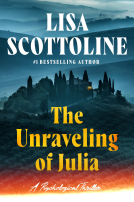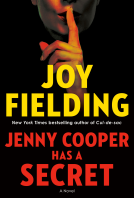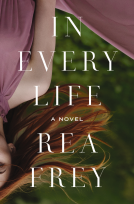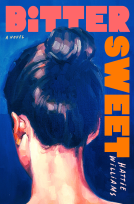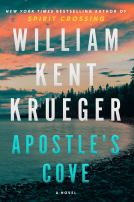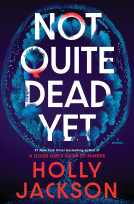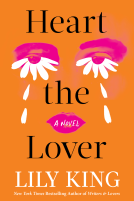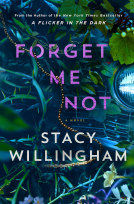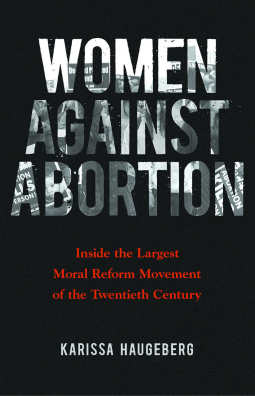
Women against Abortion
Inside the Largest Moral Reform Movement of the Twentieth Century
by Karissa Haugeberg
This title was previously available on NetGalley and is now archived.
Send NetGalley books directly to your Kindle or Kindle app
1
To read on a Kindle or Kindle app, please add kindle@netgalley.com as an approved email address to receive files in your Amazon account. Click here for step-by-step instructions.
2
Also find your Kindle email address within your Amazon account, and enter it here.
Pub Date May 15 2017 | Archive Date May 01 2017
Description
Drawing on oral histories and interviews with prominent figures, Karissa Haugeberg examines American women’s fight against abortion. Beginning in the 1960s, she looks at Marjory Mecklenburg's attempt to shift the attention of anti-abortion leaders from the rights of fetuses to the needs of pregnant women. Moving forward she traces the grassroots work of Catholic women, including Juli Loesch and Joan Andrews, and their encounters with the influx of evangelicals into the movement. She also looks at the activism of evangelical Protestant Shelley Shannon, a prominent pro-life extremist of the 1990s. Throughout, Haugeberg explores important questions such as the ways people fused religious conviction with partisan politics, activists' rationalizations for lethal violence, and how women claimed space within an unshakably patriarchal movement.
A balanced treatment of an explosive topic, Women against Abortion is an overdue portrait of the foot soldiers behind a potent American cause.
Karissa Haugeberg is an assistant professor of history at Tulane University. She edits the Newcomb College Institute's Journal for Research on Women and Gender.
Advance Praise
"This extraordinary study reveals the complex history of anti-abortion activities, one that was dominated by grassroots women, often working outside the mainstream and who, engaged in extensive, direct action, sometimes violent campaigns to end abortion rights in the United States. It will be invaluable for those who want to understand the history of women’s participation in the American Pro-life movement."—Charissa Threat, author of Nursing Civil Rights: Gender and Race in the Army Nurse Corps
"In this fascinating new book, we meet Catholic and Protestant women whose views on protesting abortion were far from uniform. Women joined the movement as leaders and protesters, and Haugeberg introduces to us in vivid and humanizing detail several key women--nearly all of them white and religiously motivated--whose influence was significant, if little recognized before now."—Susan Freeman, author of Sex Goes to School: Girls and Sex Education before the 1960s
Available Editions
| EDITION | Paperback |
| ISBN | 9780252082467 |
| PRICE | $24.95 (USD) |
| PAGES | 248 |
Links
Featured Reviews
 Karen M, Reviewer
Karen M, Reviewer
httpsWomen Against Abortion by Karissa Haugeberg
In my humble opinion, I respect each individual's views on this topic. I have always felt that I was lucky not to have to have to make this decision. This book is a very dense treatise on the history of some women who are very grassroots pro life. So much are some of these women and men are pro life and against abortion, they have taken the topic and made religious and political to feminist reasons why they deeply abhor abortion.
It chronicles the Sixties, Seventies, Eighties and right up to 2011. The various methods I found to be extremely violent. In the 1960's Marjory Mecklenburg work to shift antiabortion attention from the rights of fetuses to the needs of pregnant women. In the 1980's there was grass roots work of Juli Loesch and Joan Andrews, who were two catholic women whose activism coincided with the evangelical protestants into the prolife movement. Some of these people who were opponents of abortion bombed abortion clinics and a Doctor was murdered.
I was surprised that the federal government answer to this horrible violence left it up to the ATF (Alcohol, tobacco and firearms) who was part of the Treasury Department. These Medical Provider's that were performing abortions life was in danger. The FBI would have had the muscle to deter these arson,bombings and murder and stalking, but refused to see these prolife individuals perpetrating crimes of terrorism. This was an eye opener for me. Not recommended light reading.
Thank you to Net Galley, Karissa Haugeberg for her extensive research, and the publisher for providing me with my digital copy for a fair and honest review.
 David W, Media/Journalist
David W, Media/Journalist
Women Betraying Women
Until the late 1960s, anti-abortion was a white male Christian enclave. Women began to enter the fray at that time, and became radicalized. They brought passion and zeal, and also exaggeration, lies, vandalism, firebombing, harassment, threats, stalking and murder to the effort. They portrayed themselves as being called by God. They worked with groups called Army of God or Lambs of Christ, and moved from state to state avoiding prosecution and jail sentences. At the peak, they committed four figures of criminal incidents a year in the USA. They were for all intents and purposes, American terrorists.
Karissa Haugeberg has summarized the period, focusing on the lead characters who drove it. Every decade had its prominent figures. They were white, Christian women, Catholic in the early days, and evangelicals later. The one exception in Women Against Abortion was Mildred Jefferson, a black woman, who maintained that abortion was a tool to eliminate blacks. The other featured women are Joan Edwards, whose career spanned nearly twenty years, Juli Loesch, Shelley Shannon, who will finally be released from prison next year, Myrna Shaneyfelt, and Marjory Mecklenburg, the earliest activist. Her Crisis Pregnancy Centers now blanket the country. From her position in government she would routinely lie about the risks of abortion, saying for example, that 50% of women die from it. (The truth is that childbirth in the US has 25 times the risk of death.) She also helped invent “post-abortion syndrome”, a horrible disease that does not exist.
Haugeberg says Crisis Pregnancy Centers are staffed by volunteer female evangelicals. They tend to have no medical staff, but the volunteers dress in scrubs. They give ordinary drugstore pregnancy tests to worried women, and then delay the results while they show them horrific videos. They have been known to lie about the results, in an effort get the women past the time limit for an abortion. They have been known to immediately call the emergency contact to snitch on her. And they actually offer no help – no funding, no medical assistance, no classes. They have often named themselves to appear to be abortion services. Their manual tells them things like “At no time do you need to tell them what test you are doing.” They are there to prevent abortion at all costs, and that is all. With that accomplished, the woman and the baby are on their own. Haugeberg says the centers are “straightforwardly deceitful”.
The book is a nice balance of history and characters. The result is a poster child of a totally dysfunctional healthcare and morals system.
David Wineberg
 Damaris B, Reviewer
Damaris B, Reviewer
Women against Abortion traces the history of women in the American anti-abortion movement by exploring the actions and writings of those who shaped the trajectory of the largest moral reform movement of the late twentieth century. This story begins in the late 1960s, with Marjory Mecklenburg’s work to shift antiabortion leaders’ attention from the rights of fetuses to the needs of pregnant women. It extends into the 1970s and 1980s, with the grassroots work of Juli Loesch and Joan Andrews, two Catholic women whose activism and leadership coincided with the influx of evangelical Protestants into the prolife movement. It concludes in the 1990s with Shelley Shannon, an evangelical Protestant who emerged as one of the most prominent pro-life extremists of the late twentieth century.
This is definitely not a light read, but it's one that I wanted to complete, quite frankly, because I don't think I've ever seen another book in any book store written on this subject. Haugeberg takes a very objective standpoint, not offering personal opinion or injecting apparent bias into this commentary on the prolife movement. This was one of the things I appreciated most about Haugeberg's work, because it opens the door up for more audiences to be able to read this book, without having to endure any obvious slant by the author.
While I learned many important details about the anti-abortion movement from this book, the two things I was delighted and shocked to learn would be the following. I've taken the liberty to blockquote these directly from the manuscript I was given, so you can also learn alongside me:
"For older women, for many women who followed Catholic prohibitions against birth control, and for some of those who could not afford to attend college, the pill posed a threat to a social order that had shaped their lives. For many of these women, motherhood was the identity that mattered most: their ideas about sex, work, and personal fulfillment often hinged on their ability to nurture and sustain families. They worried that contraception and abortion, which made motherhood optional, would devalue their decision to stay at home to raise families."
~
"Between 1978 and 2015, antiabortion activists killed eleven people and attempted to kill another twenty-six. They committed 185 arsons and 42 bombings and vandalized clinics 1,534 times."
While the first quote opened my eyes to a way of thinking I had never encountered before, the second quote made me feel sick to my stomach. Perhaps I am just ignorant, but I had never heard those numbers and facts before, and I definitely should have.
In short, Women against Abortion was a very informative read on the largest moral reform movement of the 20th century. Some of the information that I learned, I will definitely be using again in future discussions and debates. Thank you to Net Galley, Karissa Haugeberg for her impressive research, and the publisher for providing me with my digital copy for a fair and honest review.
Readers who liked this book also liked:
Joy Fielding
General Fiction (Adult), Mystery & Thrillers, Women's Fiction
Holly Jackson
General Fiction (Adult), Mystery & Thrillers, Women's Fiction


